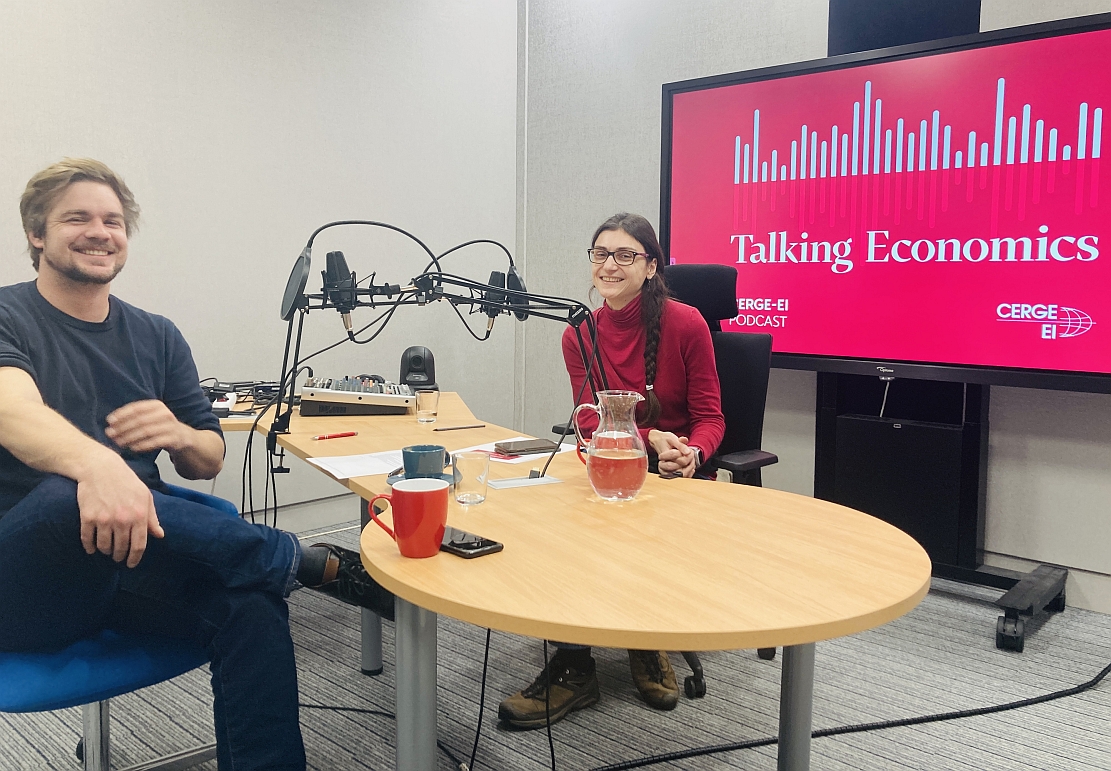When and why do national institutions change? Can some people living under particular institutions, such as democracy, play a crucial role in changing their institutions back home? Do national leaders matter? In the most recent episode of Talking Economics, Katarína Stehlíková and Sebastian Ottinger look back at European history, and from the perspective of political economy, discuss its relevance for institutional change in today’s China or Russia.

TE host K. Stehlíková and Sebastian Ottinger discuss some of the driving factors which can lead to social change - sometimes for the better.
“What we know in economics and in science more broadly is that national institutions, such as democracy, matter. They matter for economic growth. What we know from history is that institutions can be very persistent. (…) Colonies that had better institutions, they tend to have better institutions even today.”
“Institutions can sometimes change very quickly and that usually happens alongside public protest. (…) And it must not often be a change for the better. We think we know some factors that can trigger institutional change - economic decline or a crisis, but also a political crisis. Looking at Russia - failed war could be something that would trigger institutional change due to public unrest at home.”
“We know that leaders matter (…) because they concentrate expectations. Even just a few people can make a difference. Coming back to Russia, yes, maybe it’s only 10 people we need to actually drive to organizing change back in Russia. If we allow these people to stay with us and get exposure to our institutions, (…) we might have a higher chance to actually drive a change.”



Examples of protests around the world. Different social triggers, different reasons, but protests all the same: Russia,the Arab Spring, the US.

A complex mix of factors and the right players at the right time can lead to unexpected change: the fall of communism in Europe in 1989.
Sebastian Ottinger has been an Assistant Professor at CERGE-EI since September 2022. He is an Applied Microeconomist with research projects in the fields of Urban Economics and Political Economy, all drawing on European or American Economic History. He earned his Ph.D. from UCLA Anderson School of Management in 2021.


















